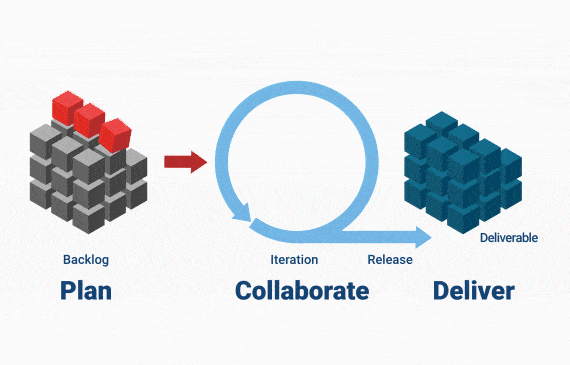Apple didn’t make the iPhone that’s in your pocket.
The company that changed personal technology forever, that posted $88 billion in sales last year and will soon be worth $1 trillion, doesn’t produce its own flagship device.
That task has actually been left to two different, independent manufacturing companies: Foxconn and Pegatron.
Why does Apple, a technology company, contract with other firms to produce what is effectively its own hardware? Because it isn’t a hardware-manufacturing company. Apple is too busy jockeying for position as one of the most valuable and innovative company in the world to deal with the intricacies and complexities of running large-scale manufacturing plants.
If Apple doesn’t make iPhones because it’s not a manufacturer, why do so many companies that aren’t in the software development business spend exorbitant amounts of time and money trying to do it in-house? Whether you’re big, small, local or international, contracting out your development needs may provide more benefit than you think.
It’s no different than accounting and legal work in certain aspects as well. Does your manufacturing company employ a team of accountants, or does it hire an accounting firm to do the books? Does your real estate company employ a legal team? Or does it leave the legal work to a team of experts and hire a law firm?
Here are five reasons contracting out software development may be the right move:
Contract Software Development Lets You Do What You Know
Whether you’re in real estate, health care, technology or something completely different, you should be enabled to perform at your highest capabilities. Be disciplined and focus on what you’re good at. Spending time trying to learn about the latest processes and tools in software development not only eats up precious time, it adds a litany of concerns that have nothing to do with your core business.

If you’re in finance, you should be focusing on knowing market trends, deeply understand regulations and spend time building up your network, not worrying about whether your code is formatted correctly.
That’s not to say you should have no in-house expertise in something outside of what you do. I actually believe that companies need to have certain in-house knowledge of what’s going on with the work their vendors are doing so they can protect themselves in case they need to switch vendors for any variety of reasons.
A Contract Software Development firm Will Be Up on the Latest Technologies
Do you know how often new versions of .NET are released? Up to speed on the latest malicious software? How about integrating artificial intelligence into your ecommerce platform?
Professional software development firms like Liventus are up to speed on all of the latest tech and processes because that’s what we do. All day, every day. It’s not something that becomes added work or interrupts a delivery schedule; it’s inherent in our everyday operations.
In-house programmers working in a non-development business will be burdened with too much work to ensure every system is compliant and up to date.
Unless you’re prepared to spend multi-millions on large teams and infrastructure, expecting an in-house developer or development team to manage all of your software needs, while also keeping up with all the latest technologies, versions of programming languages and security vulnerabilities, is simply unrealistic.
Contract Software Development Eliminates Overhead
While it certainly varies based on scope, most projects will cost you a comparable amount of money to contract out the work as it would to bring in a single, in-house developer. And salary is just part of it. There are also the added costs of purchasing licenses, paying for servers, ensuring compliance, additional training to keep up on new technologies and a slew of other unforeseen costs.
Contracting out software development ensures all of those hidden costs are already taken care of. No need to spend time or money selecting the perfect platform or purchasing the right licenses, because the firm has already done all of it for you.
Contract Software Development Ensures the Process is Fast and Agile

When releasing a product or program, managing the timeline is a big part of the challenge.
To hit that perfect window, you need to have everything lined up going into your release or launch. Proper processes should be followed, including requirement planning and reviews, code reviews, life cycles, and QA in order to make sure your program is solid and your release goes as smooth as possible.
Who better to perform this work than an experienced group of people who do it 24×7?
Companies who do not specialize in software development cannot afford to put all of their eggs in one basket. The last thing you need is for a developer to get the flu and end up having to delay release by days, weeks or maybe months. As injection work comes in and priorities change, it’s easy for the delay to grow.
And what happens if you need something changed immediately? What if you need to utilize a programming language that your developer has never used before?
By utilizing a third party to manage your development needs, you eliminate the need for complex project management systems and mitigate the potential cost of delay. If changes come up, there will be engineers who can handle it. When a date is provided, you can rest assured that an entire team is working to deliver on deadline. That kind of agility is very valuable, in terms of both time and money.
Contract Software Development Means There’s No Single Source of Failure
Let’s say you have a small team of developers, each one with an area of specialty. One of them built your payments system from the ground up and has managed the code from day one.
What happens when that developer tells you they just got a new job (probably at Apple), and they head out the door in two weeks? All of that knowledge goes out the door with them.

By contracting out your software work, you ensure that there is no single point of failure. If an engineer leaves or falls ill, there are many more who can fill in on the fly. The transfer of knowledge and tasks happens without you ever even needing to notice. Your risk of losing intellectual property is actually lower when contracting out development than if you hired one or two programmers in-house.
Be the Next Apple? Or Just Be You?
When considering where to put development dollars, you must consider what will be best for the type of business you want to run.
We can’t tell you that contracting with third parties will set your company on the path to becoming the next Apple, but we do know that if Apple does it, it’s probably a smart move.
Dan Levin is president and co-founder of Liventus. Connect with him on LinkedIn here


